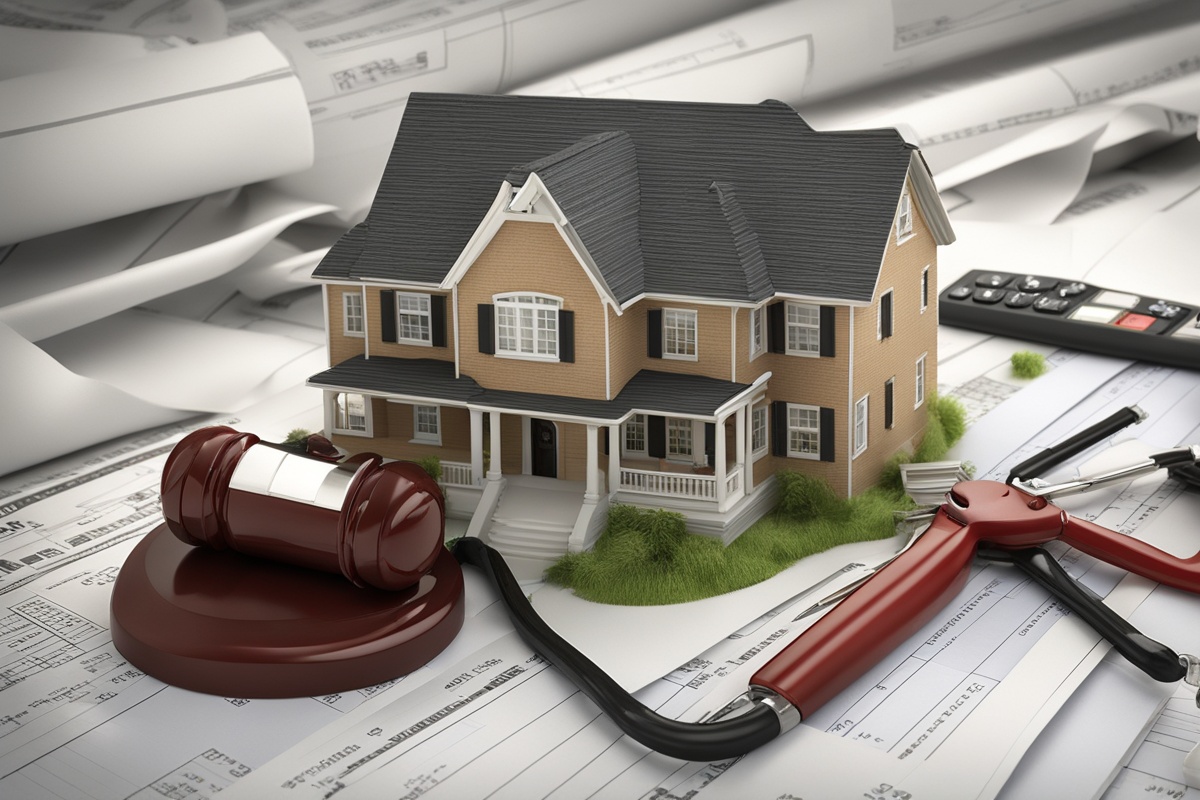Navigating the threat of foreclosure can feel like walking through a financial minefield. Whether you’re struggling to make mortgage payments or trying to rebuild after losing a home, understanding how to manage your finances is crucial. This blog post dives deep into financial planning with actionable foreclosure tips to help you avoid or recover from this challenging situation. We’ll explore practical strategies, share insights on managing debt, and provide guidance to secure your financial future. With the right approach, you can take control of your circumstances and work toward stability, even in the face of foreclosure risks.
Understanding Foreclosure and Its Financial Impact
Foreclosure is a legal process where a lender repossesses a property due to the borrower’s failure to make mortgage payments. It’s a devastating event that can tank your credit score, disrupt your life, and leave lasting emotional and financial scars. According to a report by the U.S. Department of Housing and Urban Development (HUD), millions of Americans have faced foreclosure since the 2008 housing crisis, with numbers spiking again during economic downturns (HUD, 2021). The impact isn’t just immediate; a foreclosure can stay on your credit report for up to seven years, making it harder to secure loans or rent a home.
Financially, foreclosure often means losing any equity built in the property, plus facing potential deficiency judgments if the sale doesn’t cover the mortgage balance. This is why early intervention and solid foreclosure tips are essential. Recognizing the warning signs—like missed payments or constant lender notices—can give you a head start in addressing the problem before it spirals out of control.
Building a Strong Financial Foundation to Prevent Foreclosure
Prevention is always better than cure, and when it comes to foreclosure, a proactive financial plan is your best defense. Start by assessing your current financial health. Are you living within your means? Do you have an emergency fund? Many homeowners fall into foreclosure because they lack a buffer for unexpected expenses like medical bills or job loss. A study by the Federal Reserve found that nearly 40% of Americans can’t cover a $400 emergency expense without borrowing (Federal Reserve, 2022). This statistic underscores the importance of preparing for the unexpected.
Here are some practical steps to build a financial foundation that can help you avoid foreclosure:
- Create a realistic budget that prioritizes mortgage payments and essential expenses over discretionary spending.
- Build an emergency fund with at least three to six months’ worth of living expenses to cover unexpected setbacks.
- Monitor your credit score regularly to catch issues early and maintain eligibility for refinancing or loan modifications if needed.
- Communicate with your lender at the first sign of trouble—many offer hardship programs or temporary payment relief.
By integrating these foreclosure prevention strategies into your routine, you can reduce the risk of falling behind on payments and protect your home.
Navigating Mortgage Challenges with Smart Debt Management
Debt is often the root cause of foreclosure. High-interest credit card balances, personal loans, or even an unaffordable mortgage can snowball into missed payments. If you’re juggling multiple debts, it’s time to prioritize and strategize. One effective method is the debt avalanche approach, where you focus on paying off high-interest debts first while maintaining minimum payments on others. This can free up more money for your mortgage over time.
Another key piece of advice among foreclosure tips is to explore mortgage relief options. For instance, loan modifications can adjust your interest rate or extend the loan term to lower monthly payments. The Consumer Financial Protection Bureau (CFPB) notes that many borrowers are unaware of these programs until it’s too late (CFPB, 2020). Don’t wait for a foreclosure notice—reach out to your lender or a HUD-approved housing counselor to discuss options like forbearance or refinancing.
Legal and Government Resources for Foreclosure Assistance
When facing foreclosure, you don’t have to go it alone. There are numerous legal and government resources designed to help homeowners in distress. Programs like the Home Affordable Modification Program (HAMP) or state-specific foreclosure mediation services can provide a lifeline. HUD’s website offers a comprehensive list of approved counseling agencies that can guide you through the process at little to no cost (HUD, 2021).
Additionally, understanding your legal rights is critical. Some states have “right of redemption” laws, allowing homeowners to reclaim their property even after foreclosure by paying the owed amount within a specific timeframe. Consulting with a real estate attorney can clarify these rights and potentially delay or stop the foreclosure process. Here are some key resources to consider:
- HUD’s Foreclosure Avoidance Counseling: Free advice from certified professionals.
- State Housing Finance Agencies: Many offer emergency mortgage assistance programs.
- Legal Aid Organizations: Provide low-cost or free legal support for foreclosure defense.
- CFPB Resources: Guides on borrower rights and lender responsibilities during foreclosure.
- Making Home Affordable Program: Federal assistance for struggling homeowners.
Using these foreclosure help resources can make a significant difference in negotiating with lenders or finding alternative solutions to keep your home.
Rebuilding Financial Stability After Foreclosure
If foreclosure has already happened, it’s not the end of the road. Rebuilding your financial life starts with a clear plan and a commitment to long-term stability. First, focus on repairing your credit. A foreclosure can drop your credit score by 100-160 points, depending on your starting score (FICO, 2023). Begin by paying all remaining bills on time, reducing outstanding debt, and avoiding new credit applications for at least a year.
Next, consider renting while you rebuild. This gives you time to save for a future down payment without the immediate burden of a mortgage. It’s also wise to work with a financial advisor to create a post-foreclosure budget that prioritizes savings and debt repayment. Many experts suggest waiting at least two to three years before attempting to buy another home, as this allows time for credit recovery and demonstrates financial responsibility to lenders (National Association of Realtors, 2022).
Among the most important foreclosure recovery tips is to stay informed about your credit status. Use free annual credit reports from Equifax, Experian, and TransUnion to track progress and dispute any errors. With patience and discipline, you can bounce back stronger than before.
Long-Term Strategies to Avoid Future Foreclosure Risks
Once you’ve stabilized your finances, the goal is to ensure you never face foreclosure again. Long-term financial planning is key to this. Start by choosing a mortgage that aligns with your income—avoid overextending yourself with a home that’s too expensive. A fixed-rate mortgage, for instance, offers predictable payments compared to adjustable-rate mortgages that can spike over time.
Additionally, continue building your emergency fund and diversifying income streams if possible. Side hustles or freelance work can provide an extra cushion during tough times. Finally, stay educated on foreclosure prevention tips by following real estate news and government updates on housing policies. Knowledge is power, and staying proactive can keep you ahead of potential risks.
In conclusion, facing or recovering from foreclosure is undoubtedly challenging, but with the right financial planning and foreclosure tips, you can protect your home or rebuild your life. Whether it’s creating a budget, seeking government assistance, or repairing your credit, every step you take brings you closer to stability. Remember, foreclosure isn’t a reflection of your worth—it’s a setback that millions have faced and overcome. Take control today by applying these strategies, reaching out for help when needed, and committing to a financially secure future. What’s one action you can take this week to safeguard your home or start your recovery journey? Let us know in the comments below!
References
- Consumer Financial Protection Bureau. (2020). Guide to mortgage relief options. Retrieved from https://www.consumerfinance.gov
- Federal Reserve. (2022). Economic well-being of U.S. households in 2021. Retrieved from https://www.federalreserve.gov
- FICO. (2023). How foreclosure impacts your credit score. Retrieved from https://www.fico.com
- National Association of Realtors. (2022). Rebuilding after foreclosure: A guide for homeowners. Retrieved from https://www.nar.realtor
- U.S. Department of Housing and Urban Development. (2021). Foreclosure avoidance counseling. Retrieved from https://www.hud.gov





